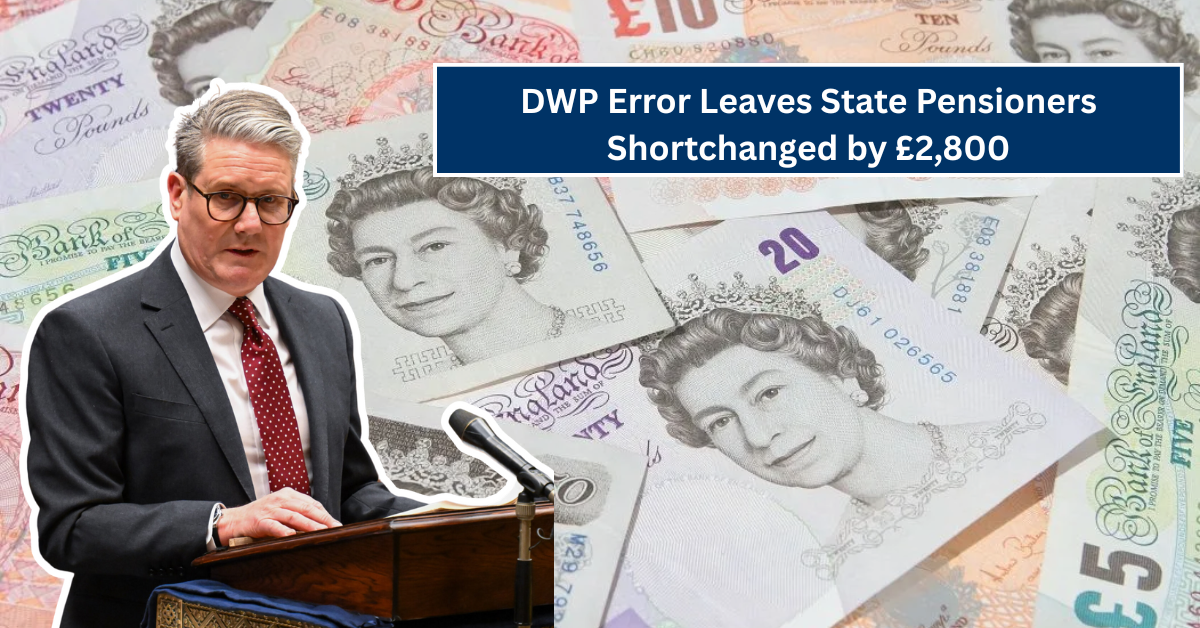
If you or someone you know is receiving a state pension from the Department for Work and Pensions (DWP), there is important news. Many pensioners born between certain dates could be missing out on almost £2,800. This issue is affecting thousands and is linked to how the pension amount is calculated and paid.
Understanding the details behind this problem is essential, especially for those who are planning their finances or supporting elderly family members. In this article, we will explain the reasons behind this loss, who is affected, and what steps can be taken to claim the money that may be rightfully theirs.
Who Are The Affected Pensioners?
The group affected includes state pensioners born between April 6, 1951, and December 5, 1953. These dates matter because of how the new state pension system was introduced in the UK. The changes brought confusion, especially around transitional arrangements and how previous National Insurance contributions were counted.
Many pensioners in this group did not receive the full benefit they were entitled to, leading to potential losses of up to £2,800 over time. It’s important to check eligibility carefully because this is not widely known, and many people have missed out without realizing it.
Understanding The State Pension Changes
In 2016, the UK government introduced a new, single-tier state pension system. This replaced the older two-tier system of the basic and additional state pensions. While the new system was designed to be simpler and fairer, it created challenges for those close to pension age at the time of transition.
Transitional protections meant that some pensioners were guaranteed a minimum amount, but this didn’t always cover every case. People born between certain dates fell into a gap where their previous contributions didn’t fully count, leading to lower payments than expected.
How Does This Impact Your Pension?
If you were born between the specific dates, your new state pension might have been calculated based on assumptions that did not fully credit your National Insurance record. This means you could be receiving less money than you deserved. Over months and years, this shortfall could add up to almost £2,800.
This reduction affects daily life and financial security during retirement. For many, every pound counts, especially with rising costs and inflation. Knowing your pension details and checking your records is the first step to ensure you are not losing out.
Steps To Check Your State Pension
The first step is to get an up-to-date state pension statement from the UK government website. This statement shows how much you should be receiving and explains any gaps. You can request it online with your National Insurance number.
After reviewing your statement, if there are discrepancies or you believe you deserve more, you can contact the DWP. It is possible to ask for a review or appeal. In some cases, missing payments can be backdated to cover the money lost.
How To Avoid Missing Out in The Future
Keeping track of your National Insurance contributions during working life is important for avoiding surprises in retirement. Younger workers should regularly check their National Insurance record and address any gaps early. This helps in building a stronger pension in the long term.
If you’re planning to retire soon, do your research and consult official resources to understand your rights fully. Being proactive can save you from losing significant amounts of money once you start receiving your pension.
Why This Matters to Younger Generations
Younger people often think pension problems only affect older adults, but this issue highlights why planning early is crucial. Understanding pension systems, contribution records, and government changes helps you prepare better for the future.
By staying informed, you can avoid unintended losses and ensure financial stability in your retirement years. Sharing this knowledge with family and friends also supports community awareness and helps many people claim what they deserve.
Conclusion: Take Charge of Your Pension Today
Missing out on thousands of pounds is a serious problem, but it is avoidable with the right information and action. If you or someone you know fits the birth date criteria, take time to check pension statements and make inquiries with the DWP.
Remember, understanding how your pension is calculated and taking steps early can make a big difference. Don’t let valuable money slip away—stay informed, stay prepared, and secure your financial future.






